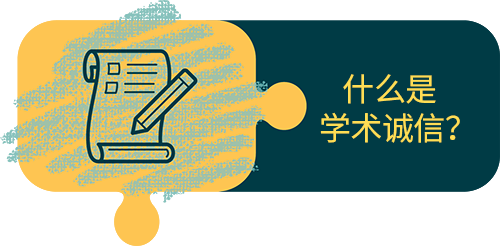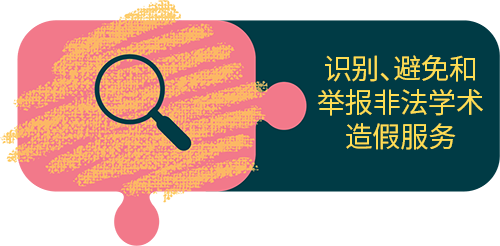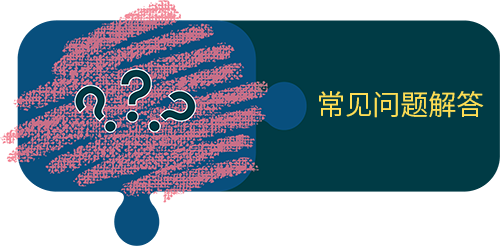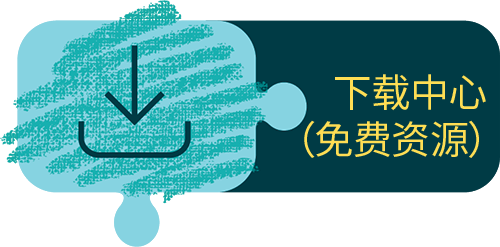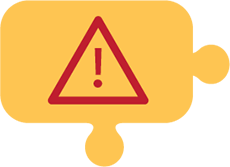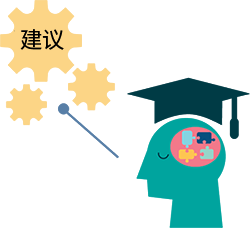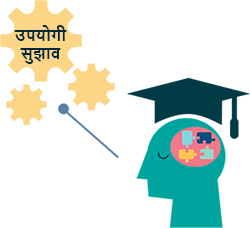शैक्षणिक निष्ठा के बारे में कुछ सामान्य प्रश्न इस प्रकार हैं। इनके उत्तर साधारण जानकारी प्रदान करते हैं, और TEQSA विद्यार्थियों को प्रोत्साहित करता है कि वे खुद से संबंधित और खुद की परिस्थितियों के अनुसार अधिक जानकारी के लिए अपने संस्थान से संपर्क करें।
अगर मैं बेईमानी करूँ तो क्या मैं पकड़ा जाउंगा?
आपने चाहे कुछ भी सुना हो, अनुसंधान और अनुभव यह दर्शाते हैं कि ऑस्ट्रेलिया के उच्च शिक्षा प्रदाता उन छात्रों को पकड़ रहे हैं जो, अवैध व्यवसायिक बेईमानी सेवाओं का उपयोग करने सहित, साहित्यिक चोरी (प्लैज़राइज़) या बेईमानी करते हैं। नई तकनीक, आकलन की डिज़ाइन में बदलावों और संदिग्ध निबंधों, प्रोजेक्ट्स या परीक्षाओं को सक्रियता से खोजने के लिए प्रशिक्षित शिक्षकों के कारण आपके पकड़े जाने की संभवनाएँ पहले से कहीं अधिक हैं।
मुझे अपना असाइंटमे्ट करने में परेशानी हो रही है, मैं कैसे सहायता प्राप्त कर सकता हूँ?
यदि आपको अपनी पढ़ाई करने में परेशानी हो रही है, तो आपको जल्दी से जल्दी अपने युनिट कोर्डिनेटर या लैक्चरर से बात करनी चाहिए। हो सकता है कि आप बातचीत करके कोई ऐसा समाधान निकाल पाएँ जो आपको अपनी पढ़ाई पूरी करने में अधिक सहायक हो। आपको अपने शिक्षा प्रदाता से भी बात करनी चाहिए कि क्या वे पढ़ाई की कुशलताओं के लिए कोई सहायता, जैसे कि संदर्भों के बारे में, निबंध लिखने के बारे में और अनुसंधान के बारे में सलाह, उपलब्ध करवाते हैं। इन उपायों को करना यह प्रकट करता है कि आप अपनी शैक्षणिक निष्ठा का सम्मान करते हैं और अपने स्कूल या युनिवर्सिटी का भी सम्मान करते हैं।
मुझे एक वैबसाइट पर कुछ स्टडी नोट्स मिले जिनको मैं पढ़ना चाहता था। इससे पहले कि मैं उन्हें पढ़ पाता, उस वैबसाइट ने मुझे एक पुराना असाइंटमेंट अपलोड करने के लिए कहा। अपना पुराना असाइंटमेंट अपलोड करके क्या मैंने शैक्षणिक निष्ठा का उल्लंघन कर दिया?
हाँ, इस बात की संभावना है कि आपने अपना असाइंटमेंट शेयर करके अपनी शैक्षणिक निष्ठा का उल्लंघन कर दिया है। अवैध बेईमानी सेवाएँ अक्सर छात्रों से कहती हैं कि वे अपना खुद का काम अपलोड करें, ताकि उन सेवाओं को नोट्स, निबंध या ‘अध्ययन सहायता’ मिल जाए और वो लाभ कमाने के लिए इन चीजों को दूसरे छात्रों को बेच दें। यदि आपके शिक्षा प्रादाता को इस बात का पता चल जाता है, तो हो सकता है कि आपको कॉन्ट्रैक्ट बेईमानी में शामिल होने के कारण कोई सज़ा भुगतनी पड़े। आपको अपने काम की रक्षा करनी चाहि॓ए और उसे कभी भी ना तो किसी के भी साथ शेयर करना चाहिए और ना ही उसे किसी थर्ड पार्टी की वेबसाइट्स पर अपलोड करना चाहिए।
यदि मैं अपना कोई ऐसा असाइंटमेंट जिस पर मुझे नंबर मिल चुके हैं, वो अपने दोस्त के साथ शेयर करूँ तो क्या वो ठीक है?
नहीं, अपने दोस्त के साथ अपना असाइंटमेंट शेयर करना एक प्रकार की सांठ-गांठ मानी जाती है, जो कि आपकी शैक्षणिक निष्ठा का उल्लंघन है। इसमें एक खतरा यह भी है कि आपका वो दोस्त आपके काम को अन्य छात्रों के साथ शेयर कर दे या फिर वह उसे किसी अवैध बेईमानी सेवा पर अपलोड भी कर सकता है। आपको अपने काम की रक्षा करनी चाहि॓ए और उसे कभी भी ना तो किसी के भी साथ शेयर करना चाहिए और ना ही उसे किसी थर्ड पार्टी की वेबसाइट्स पर अपलोड करना चाहिए।
मेरे परिवार का एक सदस्य या मेरा दोस्त, निबंध लिखने में मेरी सहायता करने के लिए कह रहा है। क्या यह ठीक है?
हाँलाकि यह एक अच्छी बात है कि आपके परिवार का कोई सदस्य या आपका कोई दोस्त सहायता करने के लए इच्छुक है, लेकिन आपको सावधान रहना होगा। जल्दी से ग्रामर या स्पैलिंग चैक करना ठीक है, लेकिन यदि आपके परिवार का कोई सदस्य या आपका कोई दोस्त आपके असाइंटमेंट में योगदान देता है, या उसकी सामग्री को बदलता है तो इसे शैक्षणिक निष्ठा का उल्लंघन माना जा सकता है।
इस बात पर ध्यान दिया जाना चाहिए कि, ऑस्ट्रेलियाई कानूनों के अंतर्गत, कोई भी व्यक्ति अगर अवैध बेईमानी सेवाएँ (जैसे कि निबंध लिखना या किसी और की जगह परीक्षा देना) प्रदान करता है लेकिन इसके लिए पैसे नहीं लेता तो भी ऐसे मामालो में भारी सज़ा हो सकती है।
मेरे शिक्षा प्रदाता ने आरोप लगाया है कि मैंने शैक्षणिक दुराचार किया है। मुझे क्या करना चाहिए?
यदि आपके ऊपर शैक्षणिक निष्ठा का उल्लंघन करने का आरोप लगा है, तो आपको यह मामला गंभीरता से लेना चाहिए। आपके संस्थान में विद्यार्थी अनुशासन, शिकायतों और अपीलों से संबंधित नीतियाँ और प्रणालियाँ अवश्य होंगी। आपको इन नीतियों को पढ़ना चाहिए, और आपके संस्थान के आधार पर, आप विद्यार्थी संगठन द्वारा उपलब्ध करवाई जाने वाली पक्ष समर्थन (एडवोकसी) और सहायता सेवाएँ भी माँग सकते हैं।
मुझे मालुम है कि मेरे कोर्स के लोग बेईमानी कर रहे हैं। मैं अपनी चिंताओं के बारे में किसे रिपोर्ट करूँ?
यदि आपके पास इस बात का प्रमाण है कि आपके कोर्स के लोग बेईमानी कर रहे हैं, तो आपको अपने स्कूल या युनिवर्सिटी को इस बारे में सूचित करना चाहिए। परिस्थितियों के आधार पर, आप अपनी चिंताएँ पहले अपने कोर्स कोर्डिनेटर या लैक्चरर के सामने भी व्यक्त कर सकते हैं या फिर आप औपचारिक माध्यमों के द्वारा अपनी शिकायत दर्ज करवा सकते हैं। आपके संस्थान का लर्निंग मैनेजमेंट सिस्टम (LMS), विद्यार्थी पुस्तिका या वैबसाइट इस बारे में जानकारी पाने के लिए अच्छे स्थान होते हैं।
क्या बेईमानी करने से मेरे भावी करियर पर असर पड़ सकता है?
हाँ, किसी भी तरह की बेईमानी आपके भावी करियर पर बहुत लंबा और नकारात्मक असर डाल सकती है। बहुत से विद्यार्थी अपने करियर के लक्ष्यों को पाने के लिए ज़रूरत के अनुसार जानकारी और योग्यताएँ हासिल करने के लिए पढ़ाई करते हैं। यदि आप पकड़े नहीं भी गए, तो भी आवश्यकतानुसार अपना काम खुद नहीं करके. आप अपने भावी नियोक्ता की अपेक्षानुसार मानदंड पूरे करने में असफल रह सकते हैं। और यदि आप बेईमानी करते हुए पकड़े गए, तो हो सकता है कि किसी प्रोफेशनल संगठन द्वारा आपका पंजीकरण करने से इंकार कर दिया जाए। आप अवैध बेईमानी सेवाओं द्वारा आपको यह धमकी दिए जाने का भी खतरा उठाते हैं कि यदि आपने उनको और ज्यादा पैसे नहीं दिए तो वो आपके नियोक्ता के सामने आपकी बेईमानी का पर्दाफाश कर देंगे।
मैंने किसी और को मेरा काम करने के लिए पेसे दिए थे और अब वो माँग कर रहे हैं कि मैं उन्हें और अधिक पैसे दूँ नहीं तो वो मेरे संस्थान को बता देंगे। मुझे क्या करना चाहिए?
किसी व्यक्ति को और पैसे नहीं देने पर नकारात्मक परिणामों की धमकी देना, ब्लैकमेल करना माना जाता है। ब्लैकमेल गैरकानूनी होता है, लेकिन दुर्भाग्यवश, कुछ विद्यार्थी बेईमानी मे शामिल होने के बाद, अवैध बेईमानी सेवाओं और यहाँ तक कि, दोस्तों, साथी विद्यार्थियों या परिवार के सदस्यों द्वारा ब्लैकमेल के शिकार हो जाते हैं। माँग पूरी करने के लिए पैसे देने से अक्सर बात वहीं खत्म नहीं हो जाती, वो बारबार ज्यादा पैसे माँग सकते है। यह स्थिति विद्यार्थियों के लिए बहुत तनावपूर्ण हो सकती है, जो ब्लैकमेल करने वाले की माँगों के साथ-साथ इस बात से भी चिंतित होते हैं कि अगर उनके संस्थान या नियोक्ता को इस बारे में पता चल गया तो क्या होगा।
यदि आपको ब्लैकमेल किया जा रहा है, तो आपको अपनी परिस्थिति के बारे में सलाह लेनी चाहिए। कुछ संस्थानों में स्वतंत्र विद्यार्थी पक्ष समर्थन (एडवोकसी) या कानूनी (लीगल) सेवाएँ होती हैं जहाँ से आपको गोपनीय सलाह मिल सकती है। कम्युनिटी लीगल सैन्टर्स भी आपको सलाह उपलब्ध करवा सकते हैं। जो हुआ, उसके संभावित प्रमाण के तौर पर उन सभी मैसेजों की एक कॉपी आपको अपने पास रखनी चाहिए।
हो सकता है कि आप यह तय कर लें कि अपनी बेईमानी के बारे में आप खुद अपने संस्थान को बताएँगे। अपने बारे में खुद ही रिपोर्ट करने का एक लाभ यह होता है कि जो व्यक्ति आपके बारे में रिपोर्ट करने की धमकी दे रहा है उसका जोर आपके ऊपर कम हो जाएगा। दूसरा लाभ यह होगा कि आप अपनी गलती से कुछ सीख सकेंगे और अपनी डिग्री यह जानते हुए पूरी करेंगे कि आपने निष्ठापूर्ण बर्ताव किया था। लेकिन आपको यह अपेक्षा रखनी चाहिए कि आपका संस्थान इस बारे में उसकी नीतियों और प्रणालियों के अनुसार काम करेगा, इस कारण से, हो सकता है कि आपको, बेईमानी के प्रकार के आधार पर, शैक्षिक सज़ा या उससे बड़ी सज़ा का सामना करना पड़े।
डीकन युनिवर्सिटी विद्यार्थी संगठन द्वारा तैयार की गई सामग्री से अपनाया गया है।
शैक्षणिक निष्ठा को समझना लैंडिंग पृष्ठ पर लौटें

